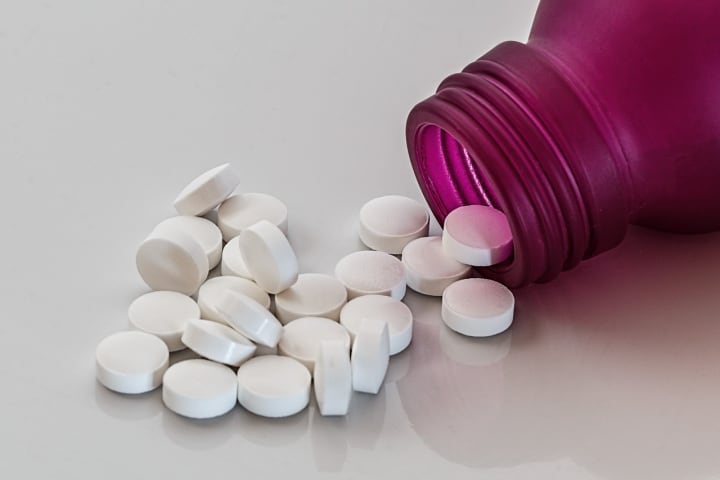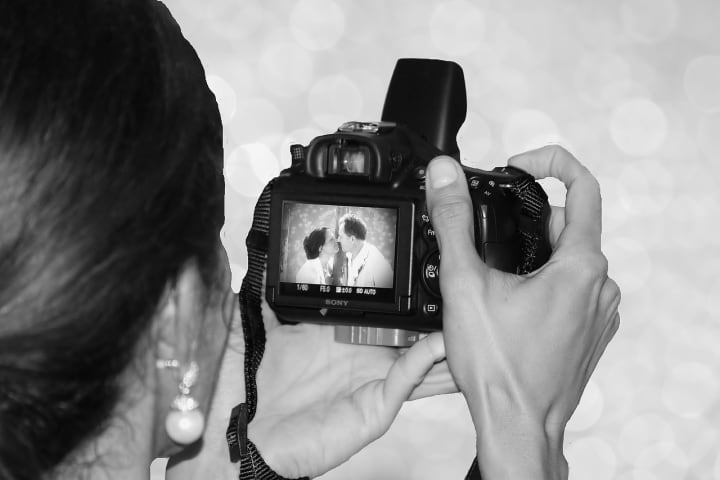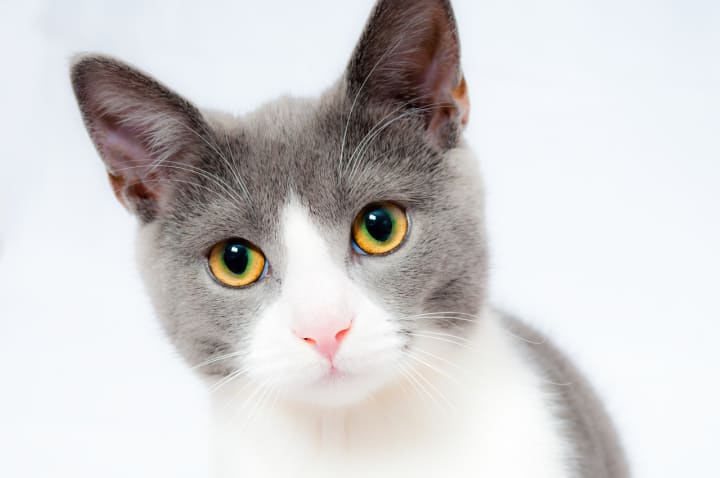My Relationship With Cats
How my pet allowed me a greater understanding of anxiety

PAIN ATTACKS ME IN MY deepest sleep. I feel the incredible choking pressure on my chest. Breathing is a labour. Oh. My. Goodness. I am having a heart attack.
The reason I know without a doubt that I am having a heart attack isn’t because I am some type of medical expert. No, the reason I am keenly aware of the symptoms of a heart attack is because my husband, John, suffers from anxiety, and when it bubbles over, it manifests physically. It feels as if I have taken him to the emergency department in every city we have ever visited. That may be a little bit of an exaggeration, but not much. I have heard doctor after doctor explain, while poring over John’s perfect ECG record, that, with an actual heart attack, there is often a tightness of the chest; some people describe it as a great weight pressing mercilessly against them. And that is exactly what I am experiencing at this particular moment. The weight on my chest is heavy, pressing, and I am having difficulty breathing. My mind wanders, and I start questioning. Is this the day I die? Is this how I die? I am only fifty years old. Why now?
I remember the first trip we took out to Prince Edward Island. The night before we were to fly home, John woke up in a panic. It was two a.m. and I was tired. Really tired. We were flying home the next morning, and I simply wanted to sleep. In fact, I was of the opinion that I needed to sleep.
“I think I should go to the hospital,” he said.
I sighed. Loudly. I stumbled out of bed, found my jeans, and reluctantly pulled my crumpled sweatshirt over bed-head hair. I was always plagued with niggling doubt that maybe this time it really was something serious.
“Okay, let’s go.”
Charlottetown at two a.m. is pretty quiet. The kind doctor on duty thoroughly examined John. Wisely reading the situation, the physician asked, “Could you possibly be worried about anything?”
John does not like to fly. And by that, I mean he is absolutely shit-scared of flying. We usually have to drug him to even get him on a plane. I remember him being barely conscious after a flight to the U.K. The meds hadn’t worn off and coherence eluded him. At Heathrow, an intimidating and incredibly busy airport, the customs officer asked, “Where are you headed in the U.K.?” Instead of mentioning our destination, John answered, “Two weeks.”
So, yes, the Charlottetown doctor had definitely read the situation. John answered, “Well”—slight pause—“we are flying back home tomorrow.”
“You don’t like to fly?” he queried. “Are you thinking about it, possibly worrying?”
“No, I’m not really thinking about it much.”
My tired eyes glared at him. Are you serious?
John continued, “Well, I don’t like flying, and I really am not looking forward to it. Maybe that is playing on my mind . . . a little bit.”
Now four a.m., we piled into the rented car and headed back to the bed and breakfast in an outlying area. I knew that we would have to get up in two hours and drive back this same route. We didn’t speak, and I sighed again and again . . . and again.

I have seen the commercials. I know what I am supposed to do for a heart attack. I need to chew an Aspirin, or is it two? I know where they are—under the sink in the cupboard in the bathroom. I need to will myself awake, go to the bathroom, get two Aspirin, and chew them. Why won’t my eyes open? Please make my eyes open.
Then there was that small town in cottage country when they had to call and wake up the doctor on call at home to come in. The nurse set up the ECG and monitored John as we waited almost an hour for the physician to travel in.
It was our first day of vacation, and again, I had fallen into a deep, relaxing sleep, not eager to be interrupted or spend my night at the local hospital. But I found myself, yet one more time, listening intently to what a heart attack feels like. It was concluded that this possibly was a pulled muscle in the shoulder area, probably incurred while doing some heavy lifting the day prior.
I am still unconscious, but I can feel awareness of the real world increasing. I can now tell that I am lying on my back. The terrible pain on my chest is more than just pressure now. I can feel sharp stabs as well. It is so intense. I desperately need to open my eyes. Open your eyes, Heather, damn it!

Then there was the time when I was working as a wedding photographer, shooting a wedding about a forty-five minute drive from home. I was in the middle of photographing the bridal party getting ready when my cell rang. It was John.
“I need to go to the hospital.”
We shared a vehicle, and I had it with me.
“I can’t really help you right at this moment,” I answered.
“But I need to go now.”
Firmly I replied, “John, I am in the middle of photographing someone’s wedding, a day that will hopefully occur only once in their lifetime. What exactly do you want me to do?” I didn’t have time for a lengthy discussion. “Never mind. I will see if my friend can take you.”
Irritation had escalated to resentment mixed with a little anger. I called a good friend and asked her to drive him to the hospital. She was just about to head in the other direction to drive two hours to visit her parents; however, she sensed the desperation in my pleas.
“I’ll take him, but I can’t wait around for him. I will have to leave him there.”
I thanked her. It would have to do.
A few hours later, in a break after the ceremony, I called John. He was back at home. He was fine, and, thankfully, nothing was physically wrong. However, he forgot to bring his wallet and didn’t have money for a taxi. He didn’t have a way to get back, so he walked. It was about an eight-kilometre trek.
~
This is life and death, Heather. Open your eyes. Find and chew an Aspirin. Then call 9-1-1. You can do this. I am able to slightly pry my cement eyelids open. It feels like I am manually raising a heavy drawbridge with chains and gears, cranking hard to move even a millimetre at a time. Then, my eyelids move a little more, and finally I cross the moat into the land of awake. I do not expect what happens next. It is the furthest thing from my mind. I find myself staring into the yellow-green eyes of my spawn-of-Satan cat, who is standing on my chest, glaring at me, nonchalantly, as if to say, “What’s your problem?” To her disappointment, I gently remove her, and miraculously all my heart attack symptoms cease immediately.

Before now, when I looked at my husband’s anxiety, I saw a cute little five-pound kitten sitting on his chest. What’s all the fuss? It couldn’t be that bad. However, in his mind, he was experiencing a fatal heart attack. How scary would that be? How awful it must be to really—and I mean really—believe that you are about to die. What must that feel like?
My stirring disturbs his sleep, and John sits up and mutters, “I don’t feel right.”
What I do next isn’t nearly as remarkable as what I don’t: I don’t sigh loudly; my eyes don’t roll, annoyed; no irritated comments are spewed. Instead I simply say, “I’m here. I’m sorry this is happening to you. Tell me how you feel.”
Although I didn’t have a heart attack that night, there was an attack on my heart. An arrow dipped in a small puddle of sympathy and understanding was cleverly, quickly, and skilfully slung into the centre of my being, shattering a layer of prejudice and stigma. I became a little more sensitive that night, and it is the catalyst for me to encourage John to seek professional help. He does, and life is so much better—for both of us.
The author William S. Burroughs once wrote:
My relationships with my cats has saved me from a deadly, pervasive ignorance.
If he only knew . . .
*A version of this story first appeared in the anthology Brainstorm Revolution: true mental health stories of love, personal evolution, and cultural revolution.
About the Creator
Heather Down
I am an observer of life through the lens of middle age. Owner of an independent publishing house and a published author, I spend my time obsessing about all things communication. Follow me at Wintertickle Press.






Comments
There are no comments for this story
Be the first to respond and start the conversation.